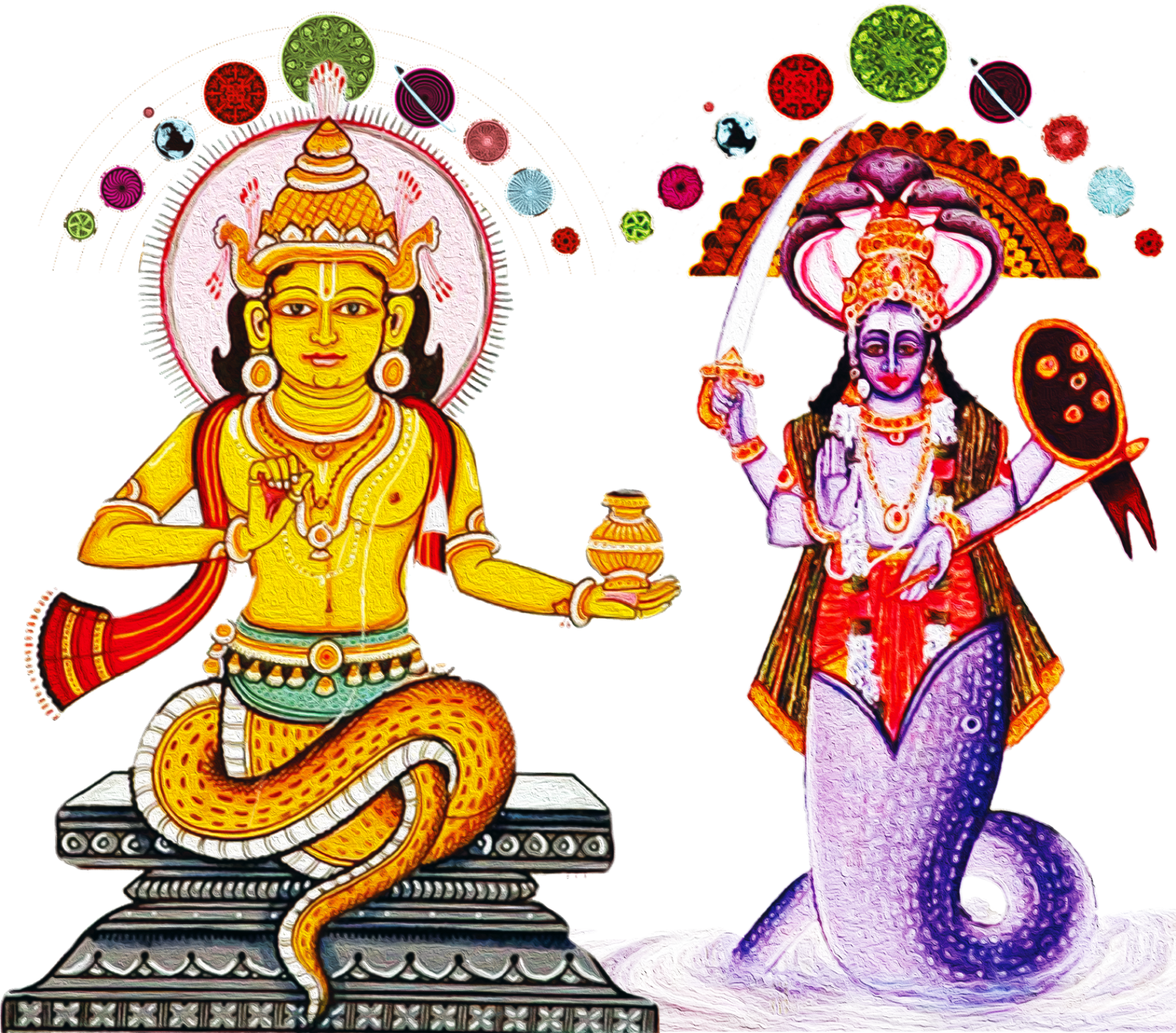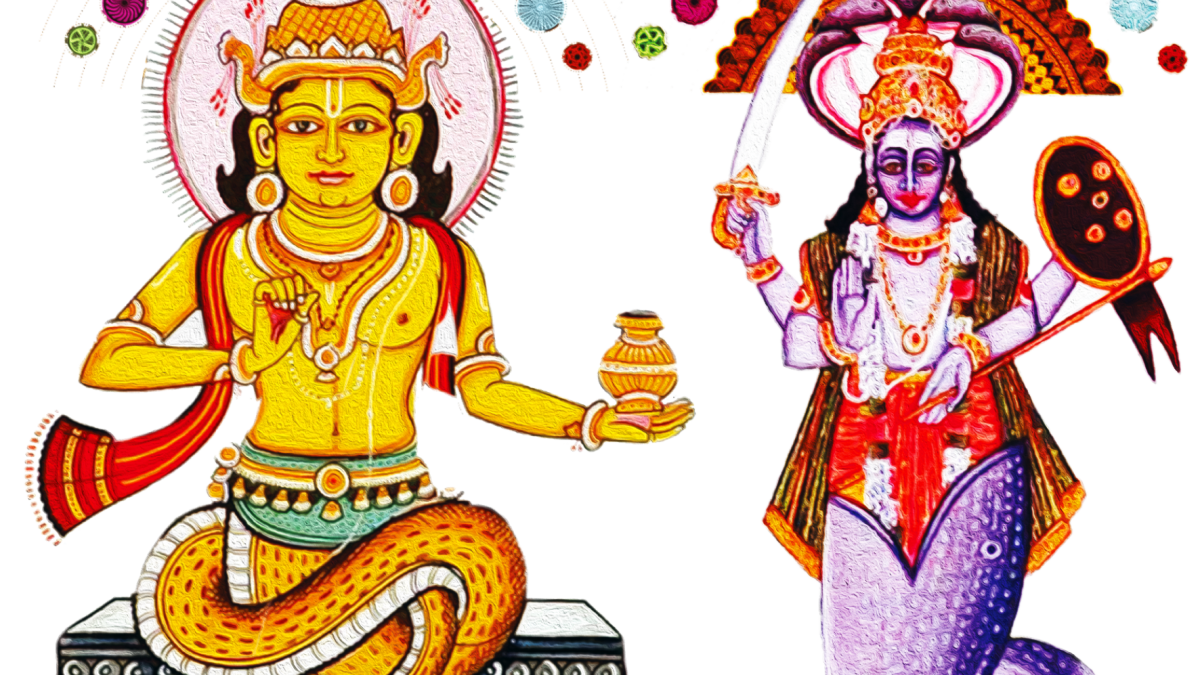
Introduction to Vedic Astrology
The famous Swiss Psychologist and former Sigmund Freud's disciple Carl Gustav Jung in his letter to Freud stated his interest in the teachings of alchemy and Indian Astrology. His insights can be found in his Analytical Psychology which goes far beyond the teachings of Freud (Austrian Neurologist and Founder of Psychoanalysis). He was interested in Indian Astrology and subject of Occultism, he also believed that it would help in diagnosing and treating mental disorders.
The planetary position in a person’s horoscope may reveal various mysteries about the past, present and future. The concepts of Astrology act as a guiding tool to an individual that shows the right direction. It also helps in the aspects of understanding one’s potential. Here, in this article we are going to understand some of the basic concepts of Vedic Astrology.
Vedas are the great contributions to the mankind from the sacred land of Bharat(India);
Rig, Yajur, Sama and Atharvana.
Vedas have six parts namely:
- Siksha – Pronunciation,
- Vyakarana - Grammar,
- Chandhas – Prosody,
- Niruktha - Etymology,
- Jyothish - Astrology,
- Kalpa - Rituals.
Among the Vedanga,
Vedanga Jyothisha (Vedic Astrology) serves as a “guiding light” and “symbol of
hope” for humanity.
Vedic Astrology has 3 parts and they are as follows:
- Ganitha Skanda - Calculations
- Jathaka Skanda - Predictions
- Samhitha Skanda - Election of auspicious timings, Mundane Astrology, Vastu and Horary Astrology.
Vedanga Jyothisha
Vedic astrology or Vedanga Jyothish emerged from Saint Lakata who lived in Kashmir in 600 BC. He organized the principles of Vedic astrology from four Vedas. His Vedanga Jyothish consists of 49 hymns based on the 36 hymns presented from Rig Veda and 44 hymns of Yajur Veda. Besides this there are 14 Chapters based on Atharvana Veda also available. But all these hymns are about Astronomy only.
In the Vedic period, Astrology does not focus on predictive techniques but speaks only about election of auspicious timings for conducting ritual, fire rituals and other religious deeds.
History of Vedic Astrology
Vedic astrology progressed in the period of Ithihasas (History) which appeared after the Vedic period. It also advanced after the period of Ithihasas and established a right place in the Literary period.
According to Kasyaba Samhitha 18 great authors are praised as the contributors to Vedic astrology. They are
- Arya
- Pithamaha
- Vyasa
- Vasihta
- Athri
- Parasara
- Kasyapa
- Narada
- Garaga
- Marisi
- Manu
- Angirasa
- Lomasa
- Poulasa
- Cyavana
- Yavana
- Manu and
- Sownaka
The art of predicting events in human life based on astronomy and calculations is known as “astrology”. According to etymological understanding the “Science of glowing objects” is astrology.
Hence, astrology is a science based on astrophysics. There are three mathematical applications that rule Vedic astrology and they are Arithmetic, Geometry and Analysis.
Solar System
The Solar system consists of Earth, Moon, Mars, Mercury, Jupiter, Venus and Saturn and all revolve around Sun. Besides this Rahu and Ketu are the other two shadows and considered as planets.
Astrology studies the influence of these planets in human life.
Everyone is aware of the physical and chemical impacts of the solar rays.
One can understand the brunt of the lunar rays also.
We can observe that physically or mentally ill people suffer much on Full Moon and Dark Moon days.
The World have witnessed disasters like Tsunami during such occasions. We are not able to sense the influence of other planets like this but really all planets influence our life on earth. Astrology confirms this influence as fate.
The relationship between time and space determines everything. It is said that certain fates can be changed and some cannot be changed.
The secret of Universe expands from zero to infinite. Universe is of three states. They are dynamic, static and neutral.
Vedic astrology defines these states of existence of Universe as Chara (movable), Sthira(immovable) and Ubaya (neutral)
The famous Tamil Philosopher, Thiruvalluvar in his text “Thirukural”
“Gnalam karuthinum kaikoodum Kalam Karuthi idathal seyyin”
The meaning of the above Kural is that “one can win even the entire world if he
acts considering time and place”

